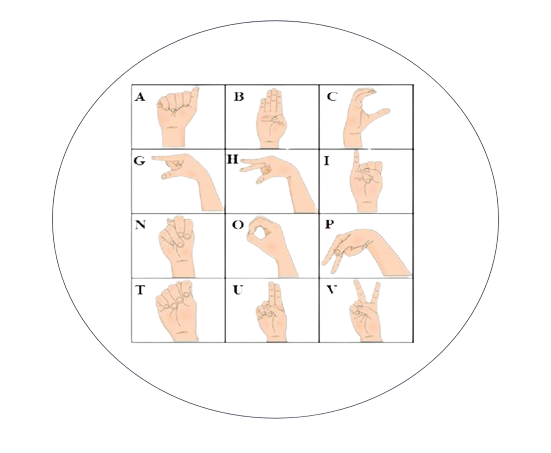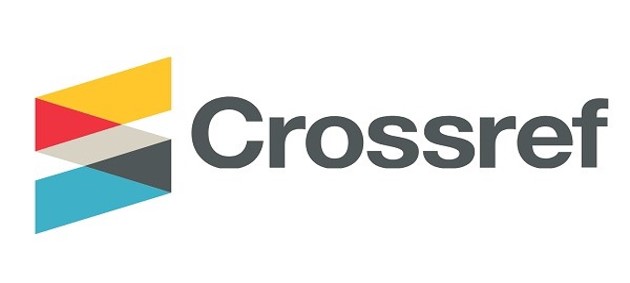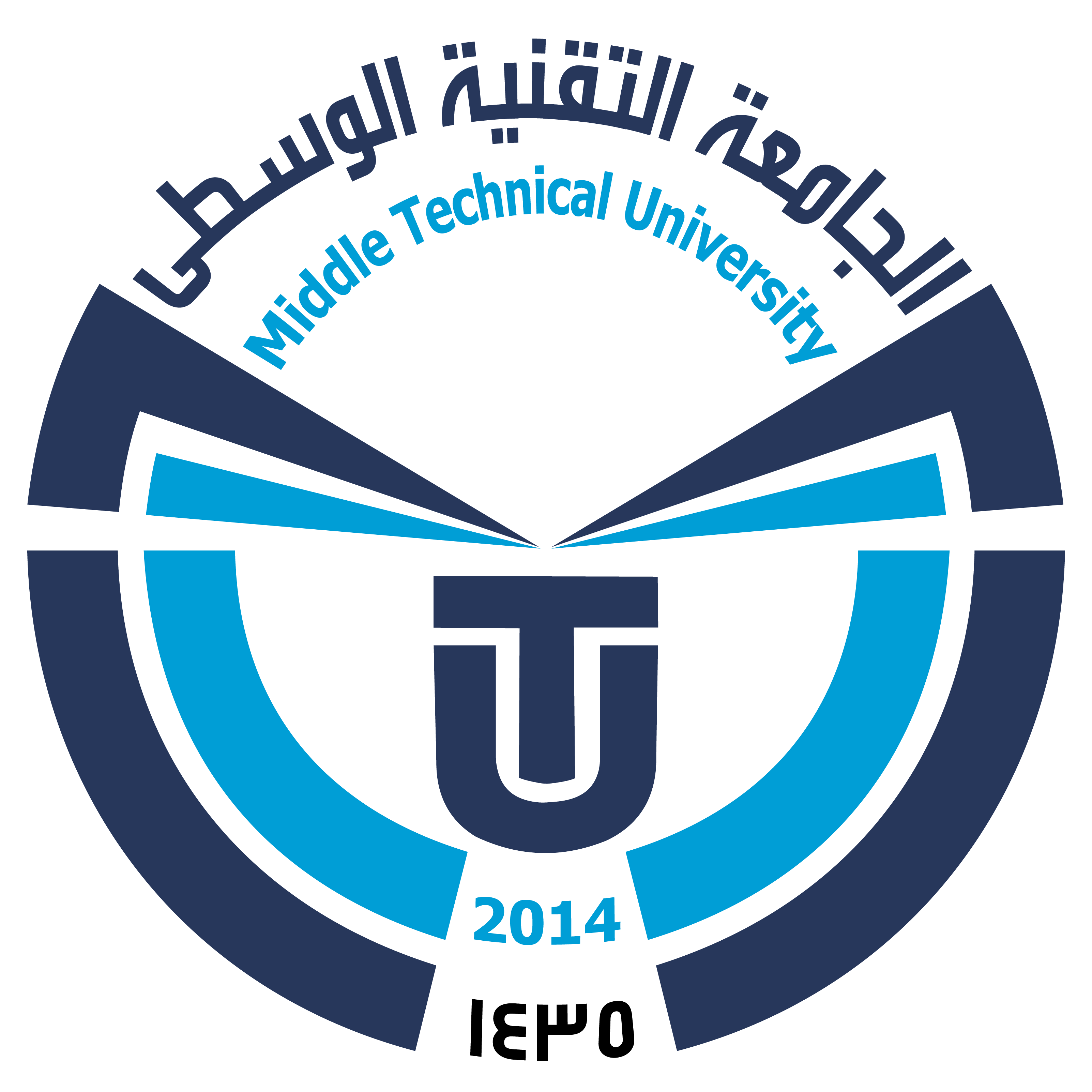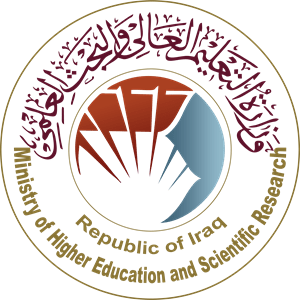Rotation Invariant Technique for Sign Language Recognition
DOI:
https://doi.org/10.51173/ijds.v1i1.6Keywords:
Sign language, Contourlet Transform, Deep Learning, RotationAbstract
Sign language recognition is an assistive technology that has garnered significant attention from researchers, particularly with respect to its potential benefits for individuals with hearing impairments. This paper proposes an effective technique for sign language recognition based on the Contourlet Transform (CT) and deep learning. The CT is employed in the pre-processing stage to reduce complexity and processing time, while deep learning is utilized to extract and classify sign language features. The proposed method was evaluated using two sign language databases: a direct feed database and an American sign language database. The experimental analysis demonstrated that the proposed method gives good results in processing time by more than 70% while maintaining high accuracy
Downloads
References
Y. Tewari, P. Soni, S. Singh, M. S. Turlapati, and A. Bhuva, “Real-time sign language recognition framework for two-way communication,” in 2021 International Conference on Communication Information and Computing Technology (ICCICT), 2021. doi: 10.1109/ICCICT50803.2021.9510094
P Kumar, H Gauba, P. P. Roy D. P. Dogra “ A multimodal framework for sensor-based sign language recognition”, Neurocomputing, vol 259, pp 21-38, 2017, doi: 10.1016/j.neucom.2016.08.132
N K Bhagat, Y. Vishnusai, G. N. Rathna, “ Indian Sign Language Gesture Recognition using Image Processing and Deep Learning”, in 2019 Digital Image Computing: Techniques and Applications (DICTA) 2019, doi: 10.1109/DICTA47822.2019.8945850
M. AL-Hammadi, G. Muhammed, W. Abdul, M. Alsulaiman, M. A. Bencherif, T S. Alrayes, H Mathkour, M A Mekhtiche “ Deep Learning-Based Approach for Sign Language Gesture Recognition With Efficient Hand Gesture Representation”, IEEE Access, vol:8, pp: 192527 – 192542,2020, doi: 10.1109/ACCESS.2020.3032140
O M Sincan, H Y Keles,” Using Motion History Images With 3D Convolutional Networks in Isolated Sign Language Recognition”, IEEE Access, vol: 10, pp 18608 – 18618 , 2022, doi: 10.1109/ACCESS.2022.3151362
N Naz , H Sajid, S Ali, O Hasan, M K Ehsan,” Signgraph: An Efficient and Accurate Pose-Based Graph Convolution Approach Toward Sign Language Recognition “IEEE Access, vol: 11, pp: 19135 -19147, 2023, doi: 10.1109/ACCESS.2023.3247761
S Joudaki, A Rehman, “Dynamic hand gesture recognition of sign language using geometric features learning “INTERSCIENCE, vol: 12, no:1, pp: 1-16, 2021, doi: 10.1504/IJCVR.2022.119239
M. N. Do and M. Vetterli, “The contourlet transform: an efficient directional multiresolution image representation,” IEEE Trans. Image Process., vol. 14, no. 12, pp. 2091–2106, 2005. doi: 10.1109/TIP.2005.859376
P. Kumar, R. Saini, P. P. Roy, and D. P. Dogra, “A position and rotation invariant framework for sign language recognition (SLR) using Kinect,” Multimed. Tools Appl., vol. 77, no. 7, pp. 8823–8846, 2018. doi: 10.1007/s11042-017-4776-9
A. Wadhawan and P. Kumar, “Deep learning-based sign language recognition system for static signs,” Neural Comput. Appl., vol. 32, no. 12, pp. 7957–7968, 2020. doi: 10.1007/s00521-019-04691-y
A. A. Barbhuiya, R. K. Karsh, and R. Jain, “CNN based feature extraction and classification for sign language,” Multimed. Tools Appl., vol. 80, no. 2, pp. 3051–3069, 2021. doi: 10.1007/s11042-020-09829-y
S. Aly and W. Aly, “DeepArSLR: A novel signer-independent deep learning framework for isolated Arabic sign language gestures recognition,” IEEE Access, vol. 8, pp. 83199–83212, 2020. doi: 10.1109/ACCESS.2020.2990699
Z G Hadi, A R Ajel, A Hussain, “Comparison Between Convolutional Neural Network CNN and SVM in Skin Cancer Images Recognition” JOURNAL OF TECHNIQUES, vol 3, no 4,2021,doi: 10.51173/jt.v3i4.390
A. Kasapbaşi, A. E. A. Elbushra, O. Al-Hardanee, and A. Yilmaz, “DeepASLR: A CNN based human-computer interface for American Sign Language recognition for hearing-impaired individuals,” Comput. Methods Programs Biomed. Update, vol. 2, no. 100048, p. 100048, 2022. doi 10.1016/j.cmpbup.2021.100048
K. Amrutha and P. Prabu, “ML-based sign language recognition system,” in 2021 International Conference on Innovative Trends in Information Technology (ICITIIT), 2021, pp. 1–6. doi 10.1016/j.cmpbup.2021.100048
A. Tyagi and S. Bansal, “Sign language recognition using hand Mark analysis for vision-based system (HMASL),” in Lecture Notes in Electrical Engineering, Singapore: Springer Singapore, 2022, pp. 431–445. doi: 10.1007/978-981-16-8774-7_35
N K Ojha, H Srivasrava, N Rakesh, “Evaluation of Feature Extractors for Sign Language Recognition,” in 2021 10th IEEE International Conference on Communication Systems and Network Technologies (CSNT) , 2021, doi: 10.1109/CSNT51715.2021.9509588
D. Guo and J. Chen, “The application of contourlet transform to image denoising,” Procedia Eng., vol. 15, pp. 2333–2338, 2011. doi: 10.1016/j.proeng.2011.08.437.
P.E Sophia , J. Anitha ,” Enhanced method of using contourlet transform for medical image compression “ INDERSCIENCE ,vol: 14, no: 1-2 , pp 107-121 ,2019,doi: 10.1504/IJAIP.2019.102966.
B Masjidi, S Bahmani, F Sharifi, M Peivandi, M Khosravani, A H Mohammed , “CT-ML: Diagnosis of Breast Cancer Based on Ultrasound Images and Time-Dependent Feature Extraction Methods Using Contourlet Transformation and Machine Learning “ Computational Intelligence and Neuroscience , 2022 , doi: 10.1155/2022/1493847.
S Kollem, K R Reddy , D S Rao , “Improved partial differential equation-based total variation approach to non-subsampled contourlet transform for medical image denoising“ Multimedia Tools and Applications, vol :80, pp: 2663-2689, 2021 , doi: 10.1007/s11042-020-09745-1.
D Zhang “ Wavelet Transform” Texts in Computer Science, pp: 35-44,2019, doi: 10.1007/978-3-030-17989-2_3.
J Ma, G Plonka, ”The Curvelet Transform”, IEEE Signal Processing Magazine,vol: 27,no: 2, pp: 118 – 133 , 2010 , doi: 10.1109/MSP.2009.935453
S. Biswas and J. Sil, “An efficient face recognition method using contourlet and curvelet transform,” J. King Saud Univ. - Comput. Inf. Sci., vol. 32, no. 6, pp. 718–729, 2020.doi: 10.1016/j.jksuci.2017.10.010
K. M. Lim, A. W. C. Tan, C. P. Lee, and S. C. Tan, “Isolated sign language recognition using Convolutional Neural Network hand modelling and Hand Energy Image,” Multimed. Tools Appl., vol. 78, no. 14, pp. 19917–19944, 2019.doi: 10.1007/s11042-019-7263-7’
D. Bhatt et al., “CNN variants for computer vision: History, architecture, application, challenges and future scope,” Electronics (Basel), vol. 10, no. 20, p. 2470, 2021.doi: 10.3390/electronics10202470
S.Nandagopal, S.Priyanga, R.Vidhyasri, N.Sharmila, & M.Suvetha. (2023). SIGN LANGUAGE DETECTION USING PYTHON AND OPENCV. International Journal of Engineering Technology and Management Sciences, 7(2). https://doi.org/10.46647/ijetms.2023.v07i02.055
Kaggle ( 2023, Feb. 11). ASL Alphabet [Online]. Available: https://www.kaggle.com/datasets/grassknoted/asl-alphabet/ [Accessed: 05-Jun-2023]















